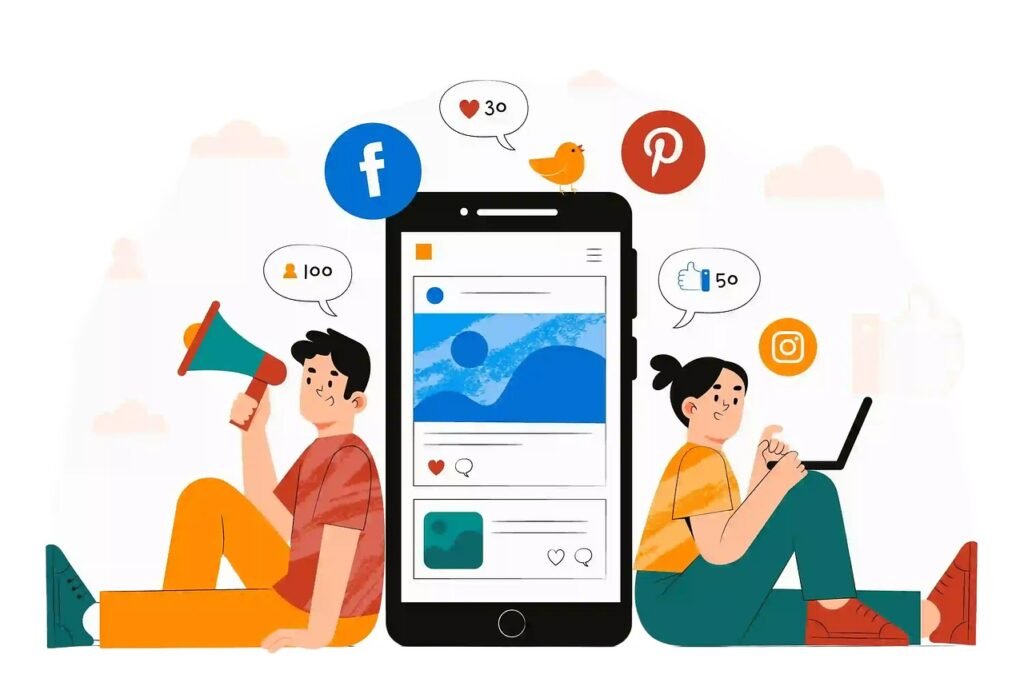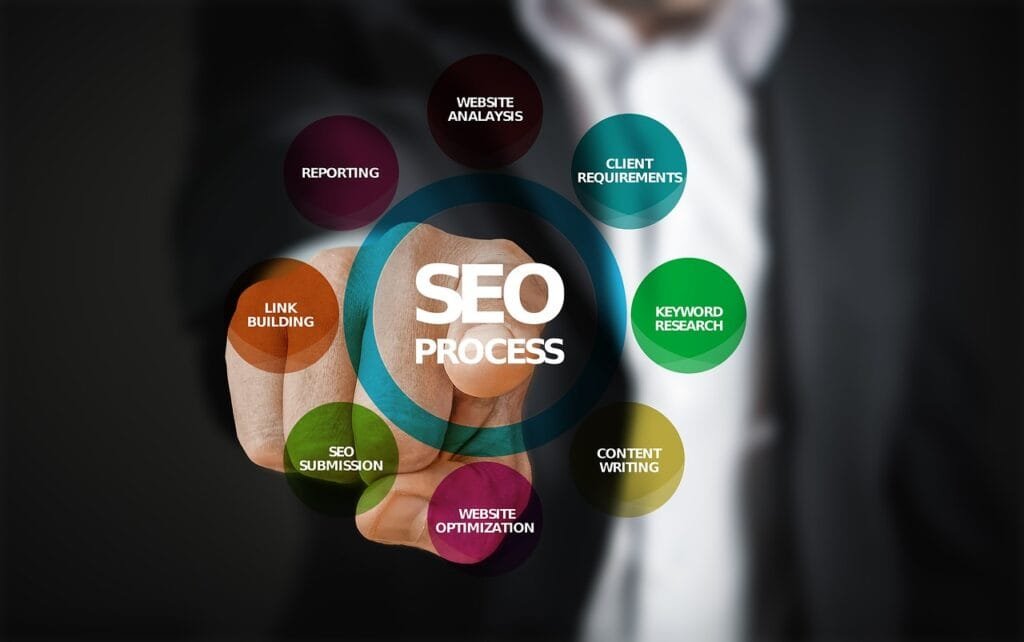This Article has been revised, edited and added to, by Poulomi Chakraborty.
- The Advantage of Agility
- Hyper-Local SEO: Dominate Your Niche
- Deliver Personalized User Experiences
- Content That Resonates: Be Authentic and Original
- Forge Strong Partnerships: Collaborative Success in the Travel Space
- Utilize User-Generated Content to Your Advantage: Amplifying Authenticity in Travel SEO
- Focus on Long-Tail Keywords: Narrowing the SEO Field to Win Big
- Invest in Technical SEO: The Underlying Framework for Success
- Continual Learning and Adaptation: The Cornerstone of Lasting SEO Success
- The Competitive Edge of Adaptation
In the sprawling expanse of the digital landscape, small travel agencies often find themselves pitted against industry giants with seemingly limitless resources. These larger entities dominate search engine results, casting long shadows that can be intimidating for smaller businesses. But David did beat Goliath, didn’t he? With a nimble approach, sharper strategies, and a clear understanding of your unique strengths, your small travel agency can not only compete but also thrive in the SEO realm. This guide unveils the tactics to outwit, outplay, and outlast the big players.
The Advantage of Agility

In the vast ocean of the travel industry, where giant cruise ships (representing big travel brands) sail with grandeur, smaller speedboats (small travel agencies) have their unique advantages. They can navigate quickly, change directions without much fuss, and explore nooks and crannies the bigger ships can’t. This agility gives them an edge, especially in the dynamic realm of SEO. Let’s delve deeper into why being nimble can be a small agency’s greatest asset.
Quick Decision Making
- Responsive Actions: Small agencies are often not burdened by layers of hierarchy and bureaucracy. When a new SEO trend emerges or there’s a sudden shift in user behavior, they can quickly recalibrate their strategies. For instance, if a particular destination suddenly becomes a hot favorite due to a movie release or an event, smaller agencies can rapidly produce content or offers around it, seizing the opportunity before it becomes saturated.
- Risk and Reward: Larger entities might shy away from trying untested SEO strategies due to the scale at which they operate. A failed experiment might have significant repercussions for them. Smaller agencies, on the other hand, can afford to take calculated risks. This adventurous approach can sometimes lead to discovering highly effective and out-of-the-box SEO tactics.
Flexibility in Strategy Implementation
- Adapting to Algorithm Changes: Google’s algorithm updates can sometimes be a game-changer in the SEO world. While big brands may take time to analyze, strategize, and then implement changes to their massive amount of content, small agencies can be proactive. They can make quick on-page or off-page modifications, ensuring they remain in tune with the latest SEO requirements.
- Personal Touch in Real-Time: Imagine a scenario where a traveler leaves a comment or review about a specific package, suggesting improvements or highlighting an issue. Small agencies can quickly address such feedback, possibly even tweaking the content or the package in real-time, showcasing their commitment to user satisfaction.
Tapping into Micro-Moments
- Seizing the ‘Now’: The concept of micro-moments revolves around capturing consumers precisely when they want to know, go, do, or buy something. Big brands might have scheduled content plans, making it challenging for them to tap into sudden micro-moments. Smaller agencies, with their agility, can craft content around these instantaneous moments, capturing audiences when their intent is strongest.
Hyper-Local SEO: Dominate Your Niche
Hyper-Local SEO is like using a magnifying glass to focus sunlight on a specific spot, creating a strong impact. In the travel industry, with vast horizons and countless destinations, the competition to rank for generic terms can be fierce. However, when you zoom in and focus on a narrower segment, things start looking promising. For small travel agencies, mastering hyper-local SEO can be the magic wand that makes them stand out. Here’s how:
Defining the ‘Hyper-Local’ in Travel
- Granular Geographical Focus: Unlike general local SEO which might target a city or a region, hyper-local SEO zeroes in on specific neighborhoods, streets, or landmarks. For a travel agency, this could mean creating content or packages centered around “Culinary Walks in Downtown Chicago” instead of “Chicago Tours”.
- Deep Dive into Niche Experiences: Instead of offering a broad “Safari in Africa”, a hyper-local approach could focus on “Night-time Leopard Safaris in South Luangwa, Zambia”. Such specific offerings resonate with a segment of travelers looking for unique experiences.
Benefits of Hyper-Local SEO for Small Travel Agencies
- Reduced Competition: By focusing on ultra-specific keywords and experiences, you’re sidestepping the fierce competition from major travel operators and targeting audiences whose specific needs aren’t being met by generic packages.
- Higher Conversion Rates: Travelers who search for hyper-local experiences usually have a clear idea of what they want. When they land on a site that offers precisely that, the likelihood of them converting is much higher.
- Established Authority: Being a go-to agency for a particular niche or a hyper-local experience helps in building a reputation as an expert in that field. This not only boosts SEO but also word-of-mouth referrals.
Implementing Hyper-Local SEO Strategies
- Keyword Research with a Micro Lens: Utilize tools like Google’s Keyword Planner, but with a focus on very specific locales or experiences. Identify long-tail keywords that big brands might not be targeting.
- Engage Local Influencers: Collaborate with local bloggers or influencers who have a stronghold in the area you’re focusing on. Their local insights can enhance the authenticity of your content.
- Optimize for Voice Search: With the rise of digital assistants, many users voice out specific queries like “What’s the best place to eat seafood on Fisherman’s Wharf?”. Optimizing for such hyper-local voice searches can be a game-changer.
- Leverage Local Events and Happenings: Regularly update content based on local events, festivals, or new attractions. This keeps your offerings fresh and in tune with what’s happening on the ground.
Deliver Personalized User Experiences
In an era where consumers are bombarded with content from all directions, personalization acts as a beacon, drawing them towards what matters most to them. For small travel agencies striving to establish a foothold in the vast travel market, offering personalized experiences isn’t just a strategy; it’s the key to fostering lasting relationships with travelers. Let’s explore how personalization can be seamlessly integrated into an agency’s offerings and its myriad benefits.
Why Personalization is Crucial for Travel Agencies
- Travel is Personal: Unlike buying a generic product, travel is deeply personal. Every traveler is looking for an experience that resonates with their tastes, preferences, and dreams. By tailoring their journey from the moment they land on your website to the trip they eventually take, you’re speaking directly to their heart.
- Stand Out in the Crowd: Personalization helps small agencies distinguish themselves from the larger conglomerates. While big brands might offer standardized packages, a personalized touch shows your commitment to crafting unique experiences for each traveler.
- Increase in ROI: Studies consistently show that personalized marketing strategies result in a higher return on investment. Tailored recommendations and offers lead to increased conversions, upsells, and customer loyalty.
Ways to Deliver Personalized Experiences
- User Behavior Analysis: Implement tools that track user behavior on your website. Understanding which packages they view, how much time they spend on certain pages, and their search queries can offer invaluable insights. Using this data, you can make real-time content recommendations or tweak your offerings to better suit their preferences.
- Interactive Quizzes and Surveys: Engage users by offering quizzes like “What’s Your Ideal Vacation Spot?” or surveys about their travel preferences. Based on their answers, provide tailored package suggestions or travel tips.
- Retargeting with Precision: Using cookies and tracking pixels, showcase ads or deals on other platforms that are aligned with what they’ve previously shown interest in. For instance, if a user was looking at beach destinations but didn’t book, retarget them with a special offer for a beach getaway.
- User Profiles and Wish Lists: Allow users to create profiles on your website where they can save favorite destinations, set travel preferences, and create wish lists. This not only enhances their user experience but provides you with a goldmine of data for future personalization.
- Personalized Email Campaigns: Instead of generic newsletters, send personalized emails based on user behavior. If they’ve recently traveled to a tropical destination, your next email could be about essential tips for post-beach skincare or offers on similar beach vacations.
The Human Touch in a Digital World
- 24/7 Chat Support: Having a responsive chat support system where users can ask specific questions or get tailored recommendations adds a personal touch to their online experience.
- Follow-up Calls or Feedback: Post their travel, a simple follow-up call inquiring about their experience or seeking feedback shows you care. It also provides insights into areas of improvement.
Content That Resonates: Be Authentic and Original

The digital landscape is awash with content. Travel enthusiasts today are inundated with articles, videos, and social media posts, all vying for their attention. But amid this content deluge, what truly makes an impact is content that resonates — content that’s authentic, original, and speaks directly to the heart of the reader. For small travel agencies looking to punch above their weight, harnessing the power of genuine and unique content can be a game-changer. Here’s why and how.
The Need for Authenticity and Originality
- Building Trust: In the age of misinformation, fake reviews, and glossy ads, travelers are becoming more discerning about who they trust. Authentic content that is honest, transparent, and genuine engenders trust, a priceless commodity in the travel industry.
- Standing Out: With countless agencies churning out similar content, originality becomes the key differentiator. It’s not about being different for the sake of it; it’s about sharing unique perspectives, stories, and insights that haven’t been regurgitated a thousand times before.
- Forming Emotional Connections: Authentic content has the power to evoke emotions — be it the thrill of an adventure, the serenity of a secluded beach, or the nostalgia of a historical site. When readers emotionally connect with your content, they’re more likely to remember your brand and engage with it.
Strategies for Crafting Authentic and Original Content
- Share Real Stories: Instead of generic descriptions, share personal experiences. Did a member of your team visit a particular destination? Let them recount their journey, the people they met, the hidden gems they discovered. Authentic anecdotes resonate more than polished marketing jargon.
- User-Generated Content (UGC): Encourage your clients to share their travel stories, photos, and videos. Not only does this provide fresh, genuine content, but it also strengthens your community and showcases real experiences.
- Stay Updated: The travel world is ever-evolving. New destinations become popular, old spots regain their charm, and travel norms change. Constantly update your content to reflect the current travel scenario, ensuring it remains relevant and fresh.
- Diverse Voices: Collaborate with a variety of content creators. This introduces different perspectives, narratives, and styles to your content, enriching its depth and breadth.
- Avoid Over-Editing: While it’s essential to maintain quality, over-editing can strip away the raw, genuine emotion from a piece. Let the authenticity shine through even if it means embracing minor imperfections.
Benefits of Authentic and Original Content
- Improved Engagement: Readers spend more time on content that captures their interest and feels genuine. This not only boosts SEO metrics but also increases the likelihood of them taking desired actions, such as bookings or sign-ups.
- Enhanced Brand Loyalty: When customers feel a brand is honest and transparent, they’re more likely to become loyal patrons, leading to repeat bookings and referrals.
- Higher Conversion Rates: Authentic content builds credibility. When readers trust the authenticity of the experiences you describe, they’re more inclined to trust your packages and services as well.

Related: Check out our free SEO suite

Forge Strong Partnerships: Collaborative Success in the Travel Space
The travel industry, at its core, is an interwoven network of relationships. From hotel chains and airlines to tour operators and local vendors, the connections run deep and wide. For small travel agencies vying for a competitive edge against the goliaths of the industry, these partnerships can be invaluable. By forging strong partnerships, small agencies can amplify their reach, enhance their offerings, and deliver unparalleled experiences to their clientele. Here’s a deep dive into the importance of these relationships and how to cultivate them effectively.
Why Partnerships Matter for Small Travel Agencies
- Expanding Reach and Resources: Partnerships can help small agencies gain access to resources and markets they might not have independently. By collaborating with established names or even other small businesses, agencies can combine their strengths and mitigate their individual weaknesses.
- Enhanced Offerings: Teaming up with the right partners can augment your service offerings. For instance, a partnership with a luxury hotel chain might allow an agency to offer exclusive packages or perks to its customers, setting them apart from competitors.
- Sharing of Knowledge and Best Practices: The travel industry is dynamic, with trends, regulations, and traveler preferences constantly shifting. Partners can share insights, market research, and best practices, ensuring all parties stay ahead of the curve.
- Risk Mitigation: Travel, especially in recent times, is fraught with uncertainties. Natural disasters, political unrest, or global pandemics can disrupt plans. Collaborative partnerships allow agencies to share these risks and find collective solutions.
Cultivating Strong Partnerships
- Identify Complementary Partners: Not all partnerships make sense. It’s crucial to identify businesses that complement your agency’s offerings and ethos. A shared vision and mutual goals are foundational for any collaboration to succeed.
- Open Communication: Like any relationship, open and transparent communication is key. Regular check-ins, feedback loops, and joint strategy sessions can keep the partnership thriving and productive.
- Joint Marketing Initiatives: Collaborate on marketing campaigns to harness collective reach. This not only reduces marketing costs but also provides a unified message to potential travelers.
- Leverage Technology: Use shared platforms or tools to streamline operations, bookings, or customer service. Unified systems can enhance efficiency and improve customer experience.
- Mutual Respect and Value: Understand that both parties bring value to the table. Acknowledge the strengths of your partner and ensure they recognize yours. Mutual respect fosters a healthier and more enduring partnership.
Reaping the Benefits
- Enhanced Customer Satisfaction: Through partnerships, agencies can offer more comprehensive packages, better deals, or unique experiences, leading to higher customer satisfaction.
- Economies of Scale: Joint ventures or collaborations can lead to bulk bookings, joint negotiations, and shared marketing efforts, reducing costs for each entity involved.
- Brand Boost: Associating with recognized names or offering something exclusive can elevate a small agency’s brand image, making them more appealing to potential travelers.
Utilize User-Generated Content to Your Advantage: Amplifying Authenticity in Travel SEO

In an era where trust and authenticity are paramount, user-generated content (UGC) emerges as a goldmine for small travel agencies aiming to outperform big brands in SEO. UGC encompasses reviews, testimonials, photos, videos, blog posts, and other content created voluntarily by customers, rather than brands. This raw, unfiltered content serves as a testament to genuine experiences, often striking a chord with potential travelers more than any polished marketing campaign could. Let’s delve into how small travel agencies can harness the power of UGC to boost their SEO and overall brand image.
Why UGC is a Game Changer for Small Travel Agencies
- Authenticity and Trust: UGC is perceived as more trustworthy than brand-produced content. A photo taken by a tourist, a genuine review, or a candid blog post about an experience can resonate more authentically with potential customers.
- Fresh and Dynamic Content: UGC provides a constant influx of new content. As travelers share their experiences, agencies can continually update their platforms, signaling to search engines that their website is active and relevant.
- Enhanced Engagement: Interactive content, like user reviews or shared photos, can boost engagement metrics. Prospective travelers are likely to spend more time on pages peppered with real traveler testimonials and images.
Strategies to Harness UGC Effectively
- Encourage Reviews: Actively request satisfied customers to leave reviews on popular platforms and your website. Consider offering small incentives or discounts for those who share their experiences.
- Showcase UGC on Your Website: Dedicate sections of your website to showcase traveler photos, stories, or testimonials. This not only boosts credibility but also enhances the richness of your content.
- Hold Contests or Campaigns: Engage your audience by holding photo contests, travel story campaigns, or hashtag challenges. This not only generates content but also increases brand visibility and engagement.
- Engage and Respond: Engage with the UGC by responding to reviews, commenting on shared photos, or sharing user stories on your social channels. This fosters a sense of community and shows potential customers that you value their contributions.
- Optimize UGC for SEO: Ensure that user reviews, photos, and other content are optimized for relevant keywords. For instance, a photo shared by a traveler can be captioned with SEO-friendly descriptions and alt-text.
- Maintain Quality Control: While UGC is largely beneficial, it’s essential to monitor and curate the content to maintain brand image. Establish clear guidelines and ensure that the shared content aligns with your brand ethos.
The SEO Boost from UGC
- Increased Organic Traffic: UGC, especially when optimized, can improve search engine rankings, driving organic traffic to your site.
- Enhanced On-Site Metrics: With engaging UGC, metrics like average time on site and pages per session can see a boost, which in turn can positively influence SEO.
- Backlink Potential: High-quality UGC, such as insightful blog posts or captivating photos, can garner backlinks from other sites, further strengthening SEO.
Focus on Long-Tail Keywords: Narrowing the SEO Field to Win Big

The world of SEO is vast, and at times, intimidating. For small travel agencies trying to carve a niche amidst mammoth competitors, focusing on the broader keywords can often lead to getting lost in the shuffle. This is where long-tail keywords come into play. These are specific, often longer phrases that potential travelers might use when they’re closer to the point of making a decision. By optimizing for these specific terms, small agencies can dramatically increase their chances of attracting the right audience. Here’s how:
Why Long-Tail Keywords Matter for Small Travel Agencies
- Less Competition: The specificity of long-tail keywords often means less competition. While major players compete for broad terms, small agencies can secure top spots for specific queries.
- Higher Conversion Rates: Users who search using long-tail keywords often know exactly what they’re looking for. If your agency provides that specific service or offering, the chances of conversion are significantly higher.
- Better Targeting: Long-tail keywords allow for more precise targeting. Whether it’s “boutique hotels in downtown Paris” or “sustainable eco-tours in Costa Rica”, you know precisely what the searcher is seeking.
- Voice Search Optimization: With the rise of voice-activated assistants like Siri, Alexa, and Google Assistant, more users are posing questions in a conversational tone. Long-tail keywords often align well with these voice search queries.
Strategies to Identify and Optimize for Long-Tail Keywords
- Use Keyword Research Tools: Tools like SEMrush, Ahrefs, or Google’s Keyword Planner can help identify long-tail keywords relevant to your travel niche.
- Understand User Intent: Dive deep into understanding what your potential customers are looking for. This might involve surveys, feedback forms, or analyzing search queries on your website.
- Analyze Competitor Content: Check what long-tail keywords competitors might be missing out on. Tools like Moz and SEMrush can help spy on competitor keywords.
- Create Valuable Content: Once you’ve identified your long-tail keywords, craft high-quality, relevant content around them. This could be in the form of blog posts, travel guides, or FAQ sections.
- On-Page SEO: Ensure that your long-tail keywords are incorporated naturally within the title tags, meta descriptions, headers, and throughout the content.
- Engage in Internal Linking: Where relevant, link back to pages optimized for long-tail keywords. This not only boosts SEO but also ensures users stay longer on your website.
Staying Ahead of the SEO Curve
Focusing on long-tail keywords is not a one-time strategy. As user behaviors change, so do the keyword trends. It’s crucial for small travel agencies to constantly monitor, analyze, and tweak their strategies, ensuring they remain visible and relevant in search engine results.
Invest in Technical SEO: The Underlying Framework for Success
In the vast expanse of SEO, where content, backlinks, and user experience often steal the limelight, the significance of technical SEO remains understated, especially for small travel agencies. Yet, it’s this very component that lays the foundation for a website’s search engine visibility and user experience. For small travel agencies looking to compete with the big players, investing time, effort, and resources into technical SEO can yield significant advantages.
What is Technical SEO?
At its core, technical SEO refers to the optimization of a website’s infrastructure, ensuring that search engines can effortlessly crawl, index, and rank the content. While it doesn’t directly deal with the website’s content, it ensures that whatever content you produce is easily accessible and understandable to search engines.
Key Components of Technical SEO for Small Travel Agencies
- Website Speed: In today’s fast-paced digital world, users have little patience for slow-loading websites. Enhance your site’s loading times by optimizing images, leveraging browser caching, and using content delivery networks (CDNs).
- Mobile Optimization: With an increasing number of travelers researching and booking via mobile, a mobile-responsive website isn’t just recommended – it’s essential. Ensure your site’s design is fluid and user-friendly across various devices.
- XML Sitemap: This serves as a roadmap for search engines, helping them understand the structure of your site. Ensure it’s updated regularly, especially when new content is added.
- Robots.txt File: This file provides directions to search engine crawlers about which pages or sections of your site should not be indexed. It’s crucial to make sure important pages aren’t mistakenly disallowed.
- Secure and Accessible Website: Ensure that your website uses HTTPS, signifying a secure connection. Search engines, especially Google, prioritize secure sites.
- Structured Data: By utilizing schema markup, you can provide search engines with more information about your content, improving the chances of rich snippets appearing in search results.
- URL Structure: Clear, concise, and descriptive URLs not only improve user experience but also enhance search engine indexing.
- Avoid Duplicate Content: Search engines can penalize for duplicate content. Use canonical tags or 301 redirects to address this issue.
- Internal Linking: A robust internal linking strategy helps distribute page authority and allows search engines to crawl your site more efficiently.
- Website Architecture: A logical, hierarchical website structure ensures users can navigate your site effortlessly, reducing bounce rates and improving user engagement.
The ROI of Technical SEO
For small travel agencies, every marketing dollar counts. While content marketing or pay-per-click campaigns might offer more immediate visibility, the long-term return on investment (ROI) of technical SEO is undeniable. It creates a robust digital foundation, ensuring every subsequent effort (be it content, social media marketing, or partnerships) gets amplified.
Continual Learning and Adaptation: The Cornerstone of Lasting SEO Success

In the rapidly evolving landscape of SEO, particularly in the competitive travel industry, standing still equates to moving backward. Big brands might have massive resources at their disposal, but they also often suffer from bureaucratic inertia. On the other hand, small travel agencies possess a unique advantage: the ability to adapt quickly to the changing dynamics of SEO. Continual learning and swift adaptation are pivotal in staying ahead of the curve and even overtaking larger competitors.
Why Continuous Learning Matters in SEO
- Ever-changing Algorithms: Search engine algorithms, especially Google’s, are constantly updated. What works today might not work tomorrow. By staying updated with these changes, small agencies can tweak their strategies in real-time, gaining an edge over bigger brands that might take longer to implement changes.
- Emerging Trends and Technologies: From voice search to AI-driven content recommendations, new technologies can disrupt traditional SEO strategies. Understanding and leveraging these innovations can place a smaller agency at the forefront of the travel industry.
- User Behavior Insights: Travelers’ preferences, behavior, and search patterns evolve. Regularly analyzing this data ensures your SEO strategy remains aligned with what potential customers are actively seeking.
Strategies for Ongoing Learning and Quick Adaptation
- Invest in Training and Tools: Dedicate resources to regularly train your team. Use SEO tools that offer insights into current trends, competitor analysis, and algorithm changes.
- Engage with SEO Communities: Join SEO forums, attend webinars, and participate in workshops. These communities often provide early warnings of changes in the SEO landscape.
- Test, Measure, Refine: Continuously test different strategies, measure their success, and refine based on results. This iterative approach ensures your strategies remain effective and relevant.
- Feedback Loops: Encourage feedback from your customers, team members, and even from the wider community. Sometimes, the most valuable insights come from those on the ground.
- Stay Curious: Encourage a culture of curiosity within your agency. A team that regularly asks questions and seeks answers will naturally stay updated.
- Quick Decision-making Framework: Implement a framework that allows for swift decisions. This ensures that once a new trend or requirement is identified, the agency can act on it without delay.
The Competitive Edge of Adaptation
Big brands, with their layers of management and fixed strategies, can often become victims of their own success. In contrast, the agility of a smaller travel agency, combined with a commitment to continual learning, can be its secret weapon. It’s not just about reacting to changes but proactively seeking and anticipating them.
In conclusion, while the giants of the travel industry may seem insurmountable, the world of SEO offers numerous paths for the agile, the innovative, and the persistent. As a small travel agency, you possess the flexibility to adapt, the capacity to offer personal touches, and the potential to carve a niche that big brands often overlook. With the right strategies, tools, and mindset, you can not only compete but shine brightly in the vast digital sky.
Read Next
- Social Media Signals and SEO for Travel Websites
- How to Use Analytics to Understand Travel Seasonality
- Analyzing User Behavior and its SEO Implications
- Using Funnel Analysis for Better Conversion Rates
- How to Set Up Conversion Tracking for Booking Engines






















Comments are closed.